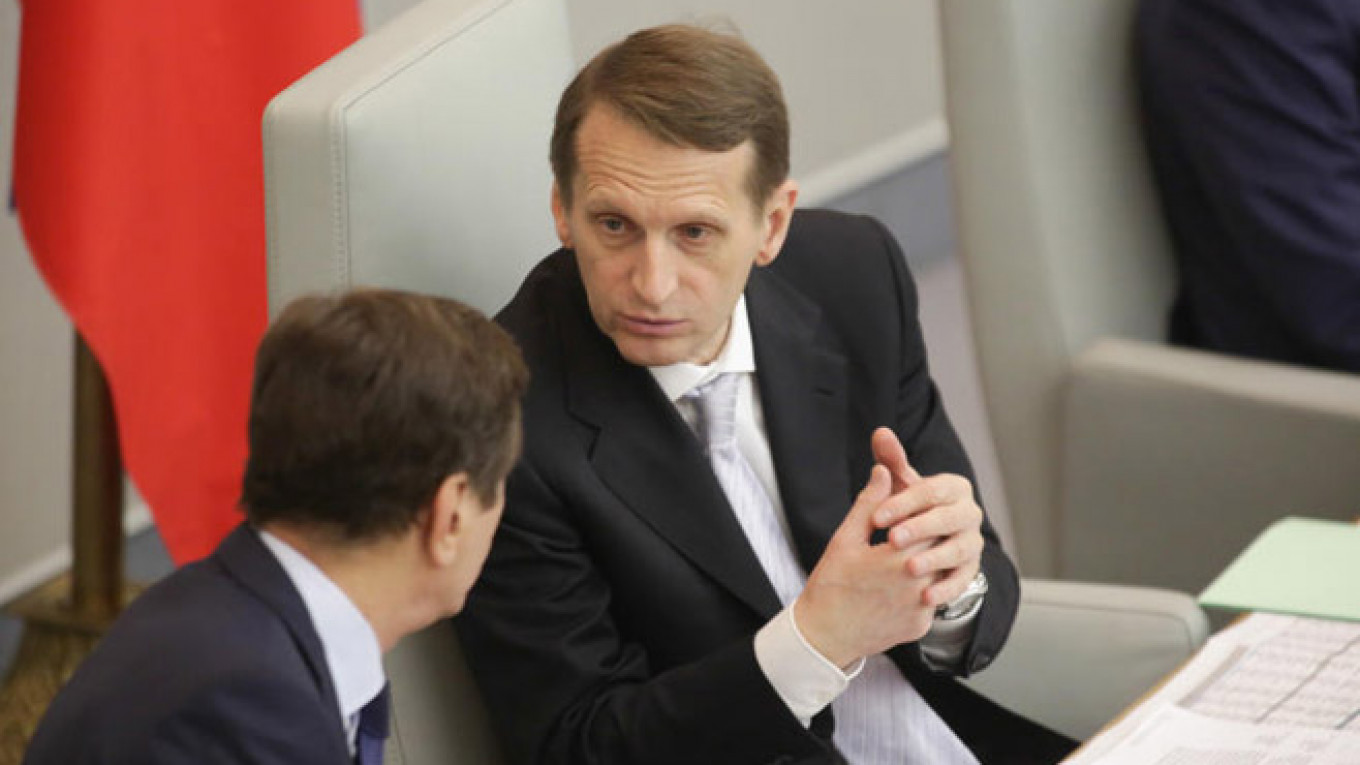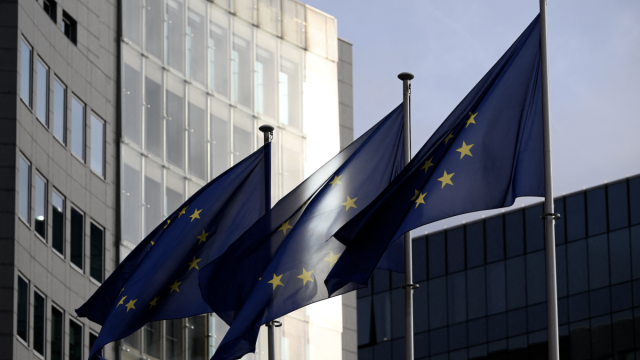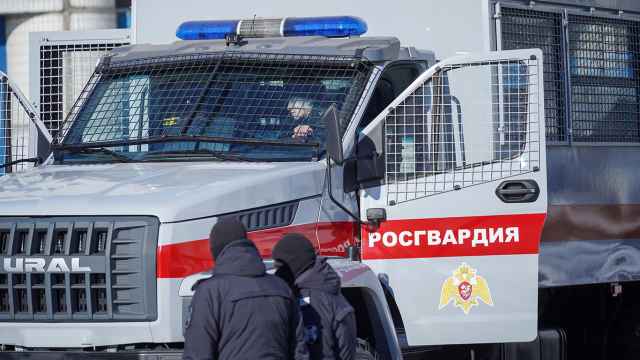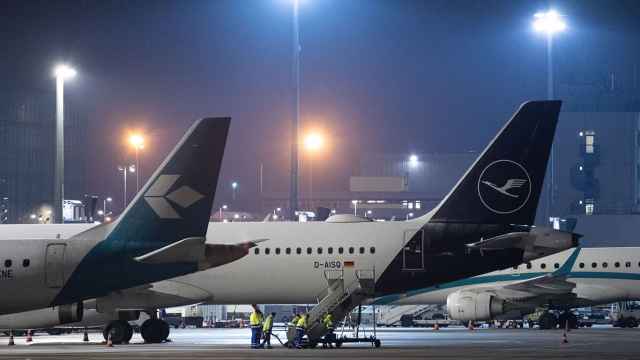The speaker of the State Duma — Russia's lower house of parliament — Sergei Naryshkin said Thursday he supports an initiative to bring forward by three months Duma elections scheduled for December 2016.
Moving the vote to September next year is "possible and even sensible," Naryshkin told reporters during a visit to Japan, the Russian news agency Interfax reported.
Public discussions by lawmakers over a possible change to the election date began earlier this week and appear to turn on which parties would gain from an election campaign during the summer months.
The proposal was first reported by Russia's Izvestia newspaper Tuesday, which named clownish firebrand and leader of the LDPR party Vladimir Zhirinovsky as the initiator.
Several political parties in the Duma expressed support for the idea, while the Communist Party reportedly opposed it. Dmitry Peskov, press secretary for President Vladimir Putin, acknowledged Wednesday that a discussion was ongoing, but declined to comment.
Opposition Duma Deputy Dmitry Gudkov said in a Facebook post earlier this week that September elections would mean a lower turnout because many people will still be on holiday. "A low turnout will strengthen the hand of the opposition," he wrote.
Elections to Russia's State Duma, which under Putin has become little more than a rubber stamp for Kremlin initiatives, are held every five years. Officials in the Kremlin are behind the attempt to move the date of the Duma elections, Russia's Vedomosti newspaper reported Wednesday.
Naryshkin said one advantage of an early vote would be that a new cohort of deputies would be able to vote on the budget for the next three years: a vote that is held in the fall.
Regional and municipal elections in Russia take place every year on the second Sunday in September. Russia's next presidential elections are scheduled for 2018.
Contact the author at [email protected]
A Message from The Moscow Times:
Dear readers,
We are facing unprecedented challenges. Russia's Prosecutor General's Office has designated The Moscow Times as an "undesirable" organization, criminalizing our work and putting our staff at risk of prosecution. This follows our earlier unjust labeling as a "foreign agent."
These actions are direct attempts to silence independent journalism in Russia. The authorities claim our work "discredits the decisions of the Russian leadership." We see things differently: we strive to provide accurate, unbiased reporting on Russia.
We, the journalists of The Moscow Times, refuse to be silenced. But to continue our work, we need your help.
Your support, no matter how small, makes a world of difference. If you can, please support us monthly starting from just $2. It's quick to set up, and every contribution makes a significant impact.
By supporting The Moscow Times, you're defending open, independent journalism in the face of repression. Thank you for standing with us.
Remind me later.







